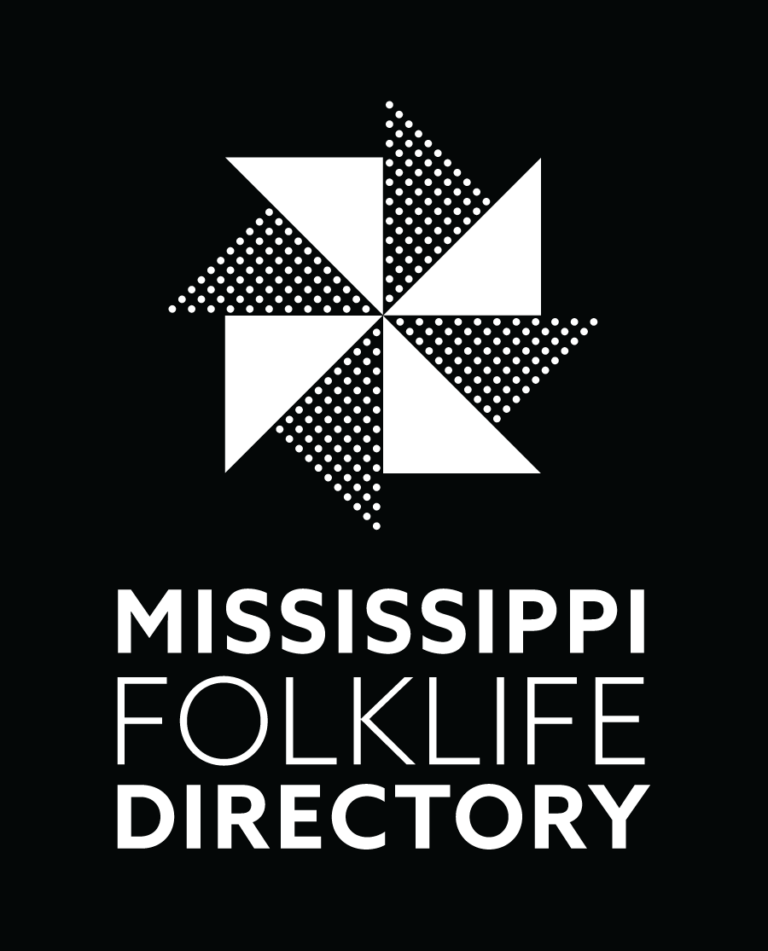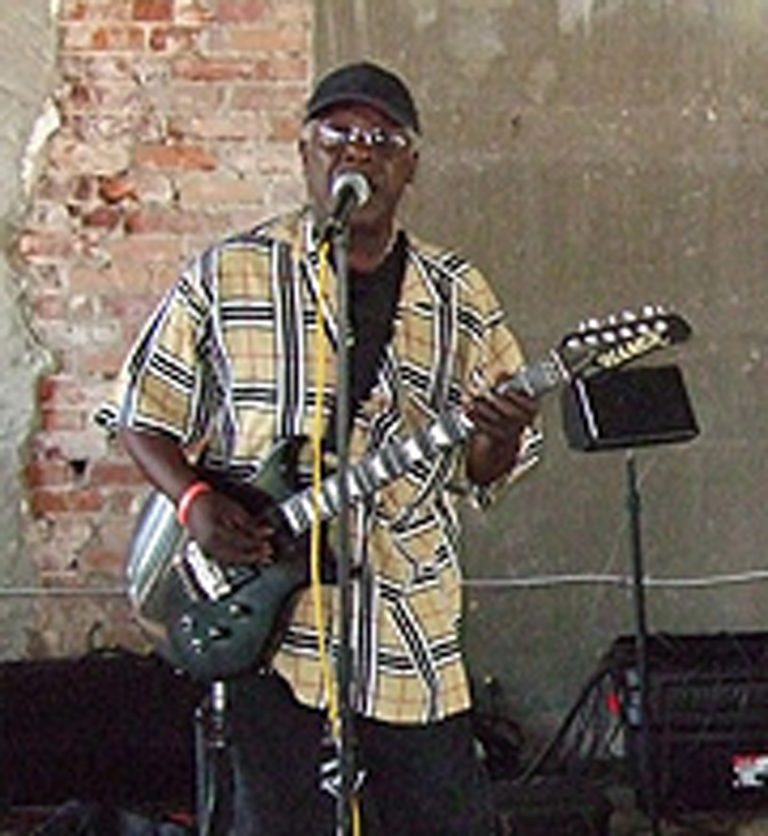Vocalist and guitarist Robert Lee “Lil Poochie” Watson was born in Natchez on March 29, 1951 but spent his first fourteen years in the rural community of Church Hill in Jefferson County north of Natchez. [He prefers to be called by his nickname and explains that it derives from his being small and that people have always called him “Poochie.”] Around the age of twelve or thirteen he built his first guitar out of a board and fishing wire and used nails as tuning pegs for the five strings. His mother soon bought him a “real” guitar from a catalog, and he was soon playing and singing gospel songs in the family home. Watson’s father died when he was thirteen, and he says that with five sisters and no brothers he became the “man” of the family.
His first guitar teacher was a blind uncle, Dave Pinder, who lived near Church Hill and performed old songs including “Uncle Bud.” Watson’s family moved to Fayette when he was fourteen, and there he studied with an older woman, Ruth Vessel, who played the guitar in her lap using a knife for a slide. Watson recalls that she didn’t sing but played bluesy songs. Watson has strong memories of Civil Rights activities in Fayette, including the historic election of Charles Evers as mayor in 1969 [he was the first African American mayor in Mississippi since Reconstruction], and the initial stagings of the Medgar Evers Homecoming celebration, which featured blues stars including B.B. King.
Watson learned more modern music by listening to Nashville’s powerful WLAC, while his mother often played records on the family’s “graphophone” by artists including Muddy Waters, Lightnin’ Slim, Slim Harpo, Jimmy Reed, and Lightnin’ Hopkins. At seventeen he left school and joined his first group, the Roadrunners, which played hits by soul artists including James Brown and Tyrone Davis. He played guitar and the vocalist was Ernest Fitzgerald, who recorded the single “Ace in the Hole” for the Daniels label in the 1970s. The group played at Natchez clubs including the Midway and John Fitzgerald’s place, and when they became the house band at a Natchez club called Soul Brothers run by “Black Dot” they changed their name to the Soul Brothers.
After Fitzgerald died in a work-related accident in the early ‘80s Watson began singing in public and recalls that he specialized in the songs of Al Green; he later changed the name of the group to Red Hot and Ready. In the mid-‘80s Watson performed with Natchez-based Hezekiah and the Houserockers at the Chicago Blues Festival and in Toronto, and shortly after this he left music. His day jobs including driving tractors and combines on a farm in Anna’s Bottom, just north of Natchez, and in the late ‘80s he began working as a gardener at the historic Rosalie plantation home in Natchez; as of June 2010, he was still working there.
In the early 2000s, Watson began leading the group R&B Express, featuring Rodney Jenkins (drums), Robert Brice (guitar), and Ernest Pickens (bass), and he also performs on occasion as a duo with drummer/harmonica player/vocalist Hezekiah Early. Watson also performs regularly as a guitar player and choir member at his church.

